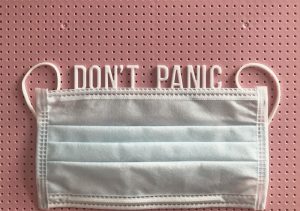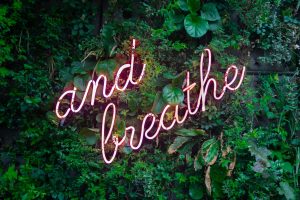
This is a guest blog by Dr Mary Holmes, a member of the Resilience and Wellbeing Network.
It has to be given in the moment and with presence and attention. Being listened to can be a rare treat in a busy world that makes so many demands upon our attention. Being listened to can make us feel valued and respected.
How we listen
At a recent Resilience and Wellbeing Network event we shared the gift of listening. Having listened and been listened to, we talked about what was important in listening. Our ears barely got a mention! We spoke about eye contact, smiling, being calm and open body language. Listening requires us to place and hold attention, to ignore those external distractions and to quieten that internal voice.
Many years ago I was learning to conduct interviews. Some of the best advice I was given was to listen to what was being said, not to think about the next question I wished to ask. Focusing on what we want to say or ask means we are not listening.
Why listen?
If you are like me you will find it easy NOT to listen to those you disagree with. And yet by listening we can learn and seek to understand. Listening will give us more information. This can then help us present a different viewpoint in a way that connects with what has been said.
By listening we can learn so much about the person who is speaking. What the person is speaking about – content – is usually obvious. However, listen carefully to how things are being said, where the emphasis is being placed, the types of words and metaphors being used, and you can learn so much more.
The person will probably reveal how they feel about the topic, that emotional link to the what they are saying. Just listen to someone talking about a great holiday or a concert they went to recently – you may hear pleasure, enjoyment, excitement. Hopefully you won’t hear disappointment.
Descriptive words and metaphors can help us connect with how that person thinks. Lots of words to do with growing and nurturing may indicate a love of nature and so using similar words will help the other person to relate to what we are saying. We can only develop this level of conversation by really attending to how the other person speaks.
Listening can raise our senses
Recently I was encouraged to sit through part of a play in a theatre with eye covers. As we talk of going to ‘see’ a play this sounded like a strange thing to do (well it was!). I was amazed by how quickly my senses adapted. I was easily able to pick up those cues that I would often have depended upon my sight for – recognising the different actors, placing where they were on the stage and knowing if someone had entered. There were some loud noises and I felt these through my feet as well as hearing them. Of course, I missed the bright lights and other visual effects but I gained much too. It reminded me that listening is a whole-body experience and the ears are just one small part of listening.
Listening to ourselves
Naturally we place the emphasis of on listening to others. However, we also need to listen to ourselves. Too often we fill our space with noise that can stop us thinking, reflecting and listening to what we think and feel.
Give yourself and someone you know the gift of a good listening to. Enjoy!
Contact us to find out more about the Resilience and Wellbeing Network.











